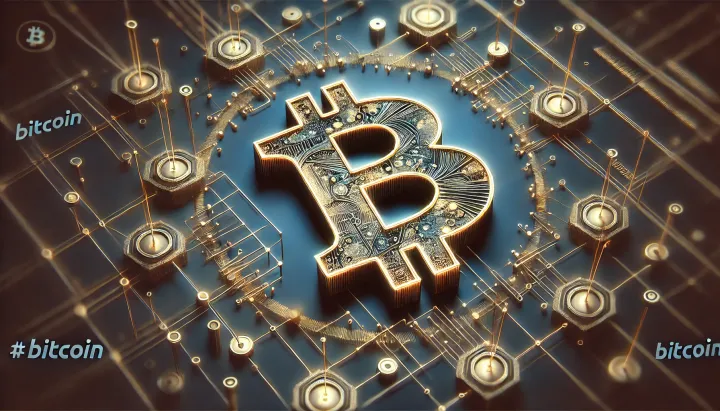Institutional Bitcoin and the Freedom Paradox
The April 23 2025 episode of Bitcoin Fundamentals features Alex Gladstein explaining how profit-seeking institutions adopt Bitcoin yet inadvertently amplify individual sovereignty.

- My 'briefing notes' summarize the content of podcast episodes; they do not reflect my own views.
- They contain (1) a summary of podcast content, (2) potential information gaps, and (3) some speculative views on wider Bitcoin implications.
- Pay attention to broadcast dates (I often summarize older episodes)
- Some episodes I summarize may be sponsored: don't trust, verify, if the information you are looking for is to be used for decision-making.
Summary
The April 23 2025 episode of Bitcoin Fundamentals features Alex Gladstein explaining how profit-seeking institutions adopt Bitcoin yet inadvertently amplify individual sovereignty. Gladstein and host Preston Pysh trace nation-state mining, Wall Street ETFs, and NGO aid flows to show that Bitcoin’s “Trojan-Horse” dynamic rewires systems from within. The discussion flags governance, custody, and energy risks that policymakers must address as adoption accelerates.
Take-Home Messages
- Trojan-Horse Dynamic: Institutional demand strengthens Bitcoin’s freedom properties instead of neutralizing them.
- Strategic Reserves: Government treasuries and ETFs signal mainstream legitimacy—raising systemic policy stakes.
- Humanitarian Lifeline: NGOs bypass sanctions and bank freezes, proving Bitcoin’s real-world civil-liberties value.
- Custody Divide: ETF growth amplifies the need for self-custody literacy and transparent proof-of-reserves.
- Energy Repricing: Mining monetizes stranded renewables, reshaping grid planning and climate debates worldwide.
Overview
Alex Gladstein frames Bitcoin adoption as a paradox: Wall Street and governments buy for price appreciation, yet the asset’s permissionless design quietly expands user freedom. He cites the U.S. strategic Bitcoin reserve, BlackRock’s ETF, and corporate treasuries as evidence of accelerating institutional pull. Price-driven accumulation cannot, however, detach Bitcoin from its censorship-resistant core.
Nation-state activity reinforces the point: Bhutan, Kenya, and Oman convert hydropower and flared gas into hash rate. Bedford FC finances three football promotions through a Bitcoin treasury. These examples illustrate how energy, sport, and public finance increasingly intersect with hard-capped digital money.
Civil-society use cases underscore Bitcoin’s humanitarian upside. A twelve-member Bitcoin Humanitarian Alliance now routes salaries and grants across borders despite sanctions and capital controls. Gladstein recounts Canadian trucker protests where most donated Bitcoin reached recipients despite court injunctions.
Policy frictions persist. El Salvador still depends on IMF loans, and large mining pools raise censorship risks. Tariff-driven inflation could trigger backlash narratives blaming Bitcoin unless proactive governance and education close emerging gaps.
Stakeholder Perspectives
- Regulators: Demand custody disclosures and fear capital-flight channels.
- Humanitarian NGOs: Embrace censorship resistance but need stronger privacy tooling.
- Institutional Investors: Chase upside yet risk credibility if ETF holdings outstrip physical supply.
- Energy Producers: Monetize stranded power while navigating ESG scrutiny and grid-stability duties.
- IMF & World Bank: Face waning leverage as sovereign Bitcoin treasuries expand.
Implications and Future Outlook
Institutional inflows and sovereign buying will likely push Bitcoin toward reserve-asset status, eroding exclusive reliance on U.S. Treasuries and challenging legacy monetary governance. Jurisdictions that foster transparent proof-of-reserves and self-custody education could insulate citizens from custodial fragility. Those that resist may see capital migrate to friendlier venues.
Energy markets stand to reprice as miners arbitrage global electricity mis-allocations, driving investment to hydropower and stranded gas fields. Policymakers must balance grid resilience, environmental metrics, and local pricing fairness. Coordinated standards could turn mining into a stabilizing demand-response resource instead of a scapegoat.
Narrative risk looms as tariffs and de-globalization lift consumer prices. Without clear differentiation between Bitcoin’s monetary role and macro shocks, reactionary regulation could emerge. Pre-emptive public-education campaigns and data-driven policy analysis will be critical to steer discourse toward constructive solutions.
Some Key Information Gaps
- How can self-custody education scale quickly enough to counterbalance custodial ETFs? Broad literacy is vital for preserving Bitcoin’s freedom utility and is achievable via low-cost curricula and wallet design improvements.
- What governance safeguards can prevent jurisdictional mining monopolies from censoring transactions? Robust pool protocols and transnational standards would protect global users against state-level coercion.
- What alternative financing models let Bitcoin-adopting nations reduce IMF dependency without austerity spirals? Viable options could reset development trajectories across the Global South.
- Which communications strategies pre-empt narratives that blame Bitcoin for inflation during tariff-induced price spikes? Clear messaging can avert hasty regulation and maintain market stability.
- Which privacy technologies offer the best trade-off between usability and on-chain anonymity for activists? Effective tools directly impact physical safety and can be piloted quickly across multiple regions.
Broader Implications for Bitcoin
Monetary Sovereignty Reimagined
Bitcoin’s fixed supply challenges long-standing currency hierarchies by giving states and citizens a stable alternative to inflationary fiat. As sovereign treasuries diversify into Bitcoin, pressure mounts on multilaterals to overhaul debt-issuance models built on devaluation. Hybrid reserve strategies blending Bitcoin with traditional assets could become the new credibility benchmark.
Humanitarian Finance Evolution
Permissionless transfers let NGOs bypass politicized banking rails, accelerating relief delivery in sanctions-ridden regions. Integrating open-ledger disbursement channels may push multilateral agencies toward greater transparency. Audit-friendly Bitcoin tools could lift accountability standards across the aid sector.
Energy-Market Transformation
Mining converts stranded or intermittent power into exportable digital value, spurring infrastructure investment in remote areas. Grid operators may adopt flexible tariffs that treat miners as demand-response partners rather than adversaries. Over time, Bitcoin-denominated electricity contracts could benchmark cross-border renewable trade.
Governance Realignment
Widespread self-custody prompts citizens to question inflationary fiscal policies and capital controls. Legislatures will face pressure to codify wallet rights and refine tax regimes, shifting influence from central banks to open-source standards bodies. Early-adopting jurisdictions could attract fintech and energy innovation clusters.



Comments ()